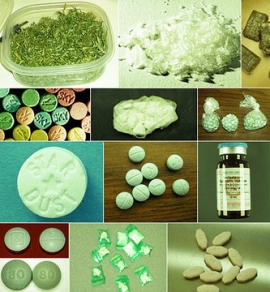
Many addicts have attempted the questionable “Geographic Cure”—physically getting away from your dealers and drinking buddies to try and start over. But maybe not so much any more: Silk Road killed it. What is Silk Road? Imagine Amazon.com. Now imagine that instead of books, Amazon stocked drugs, with each pill and powder listed alongside a color photo and an “add to basket” button. Billed as “the anonymous marketplace,” Silk Road, which launched in February 2011, also stocks forged documents, paraphernalia—and even a few weapons. But getting on the service isn’t as simple as pointing your browser to Amazon—it requires a bit of technical know-how. Users access the site through a special browser that hides their IP addresses, making it impossible to trace their movements online. The site itself redirects traffic through a random chain of computers around the globe in order to hide its location. Buyers and sellers trade in “Bitcoin”—an Internet-only currency that bypasses the traditional banking system. And the URL is mostly gibberish.
Some people see this as a positive development. Gerald, a current user from Peru, tells The Fix, “Silk Road is a safer alternative to copping on the streets or from a dealer. It eliminates the constant traveling and the transaction itself is much harder to find out about.” But the site has caused plenty of problems for Internet-savvy recovering addicts: “I relapsed all over that site when I found out about it,” Nick, a former user in England, tells us. “But it was actually a positive experience because it forced me to strengthen my recovery and not rely on the fact I physically couldn’t score in the area I was living.”
